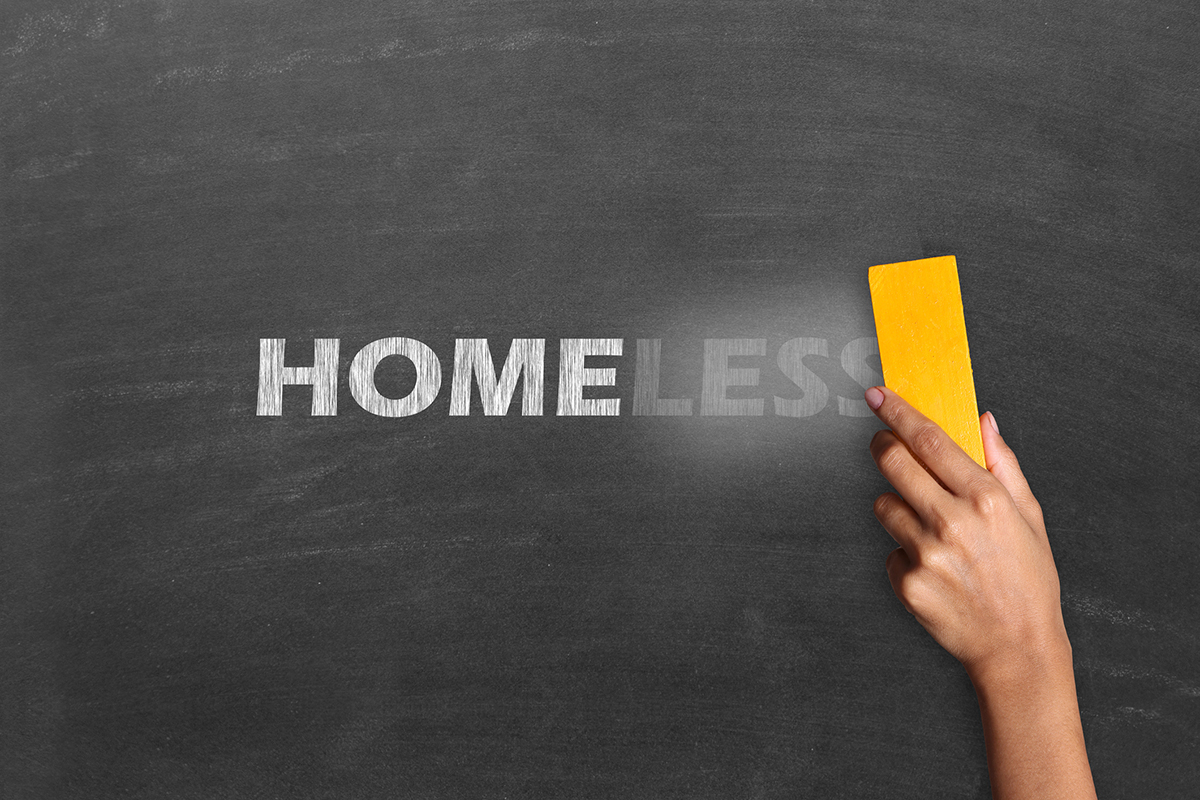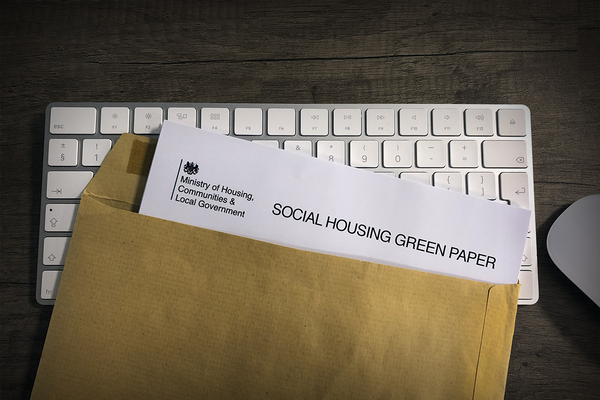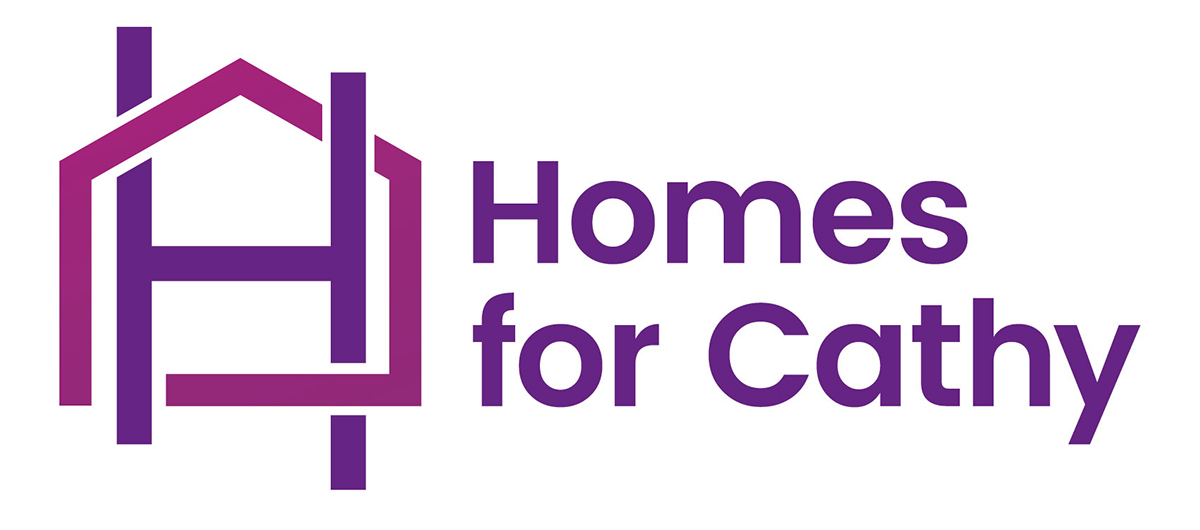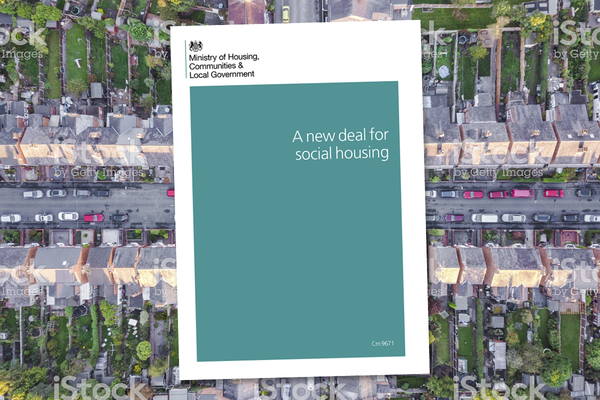
The regulator should monitor how associations assist homeless people
Government announcements this week are positive, but any enhanced role for the English regulator should include looking at homelessness prevention work, argues David Bogle
Maybe we were naive to expect substantial promises of additional government spending in the Rough Sleeping Strategy and the Social Housing Green Paper in advance of the November Budget and the full departmental Spending Review in 2019.
But there is considerable disappointment that the rhetoric from Sajid Javid in the spring on both rough sleeping and the green paper does not seem to have resulted in any new funds to increase the supply of social rented homes – which many see as the key to reducing homelessness and rough sleeping and mending the ‘broken housing market’.
There are reasons to be cheerful. We have moved on from the dark days of the coalition government.
There is a clear commitment from the prime minister and down through the government to the important role of social housing and the need for more of it.
No one reading the Rough Sleeping Strategy could seriously doubt the thoroughness of the review and the intent behind it – not least, in the long list of strategy commitments that stretch across a wide range of government departments.
“There is a clear and continuing retreat from the policies that so demotivated the sector three years ago.”
It must be good news that the government has repeated the pledge to half rough sleeping by 2022 and end it by 2027. They have listened to the advisory panel in devising the strategy; they have seconded Jeremy Swain of Thames Reach to lead an expanded departmental team; they have not ducked the difficult issues such as migrant homeless, prison leavers and the Vagrancy Act.
Being realistic, we should expect the change of secretary of state and housing minister to lead to some reappraisal of the original priorities.
But there is a clear and continuing retreat from the policies that so demotivated the sector three years ago.
The more muted reference to Voluntary Right to Buy and the pilot programme, the mention of portable discounts and the removal of the threat of local authorities having to sell their vacant high-value homes are all welcome.
In the Homes for Cathy group, we were hoping for more incentives and challenges for housing associations on homelessness arising from the Rough Sleeping Strategy and the green paper.
Our nine Homes for Cathy commitments (see below) are a call for housing associations to put the relief of homelessness at the centre of their mission and social purpose.
Working with Crisis and others, we want to support housing associations to break down barriers to housing homeless people and make a real and positive impact on the numbers of rough sleepers and families in temporary accommodation.
If there is to be an enhanced role for the regulator, let it include monitoring how housing associations assist homeless people through lettings, minimising evictions, supporting local authorities in their statutory responsibilities towards homeless people etc.
Thriving communities embrace those who have fallen on difficult times.
“We want to support housing associations to break down barriers to housing homeless people.”
And, in answer to question 41 in the Social Housing Green Paper – yes, landlords should report on the social value they deliver!
But, in reflecting on the Rough Sleeping Strategy and the Social Housing Green Paper, let us not lose sight of the long-term nature of our work as housing associations.
Our mission, our values and our social impact must endure beyond the term of governments, green papers, strategies, funding programmes, politicians, civil servants, regulators and even our own boards and staff.
We are largely in the fortunate position of being able to determine our own future – there is much to be cheerful about.
David Bogle, chief executive, Hightown Housing Association
The nine Homes for Cathy commitments
The Homes for Cathy group of housing associations, working with housing charity Crisis, is asking its members to sign up to nine commitments to tackle homelessness:
They are:
- To contribute to the development and execution of local authority homelessness strategies
- To operate flexible allocations and eligibility polices which allow individual applicants’ unique sets of circumstances and housing histories to be considered
- To offer constructive solutions to applicants who aren’t deemed eligible for an offer of a home
- To not make homeless any tenant seeking to prevent their homelessness (as defined in the Crisis plan)
- To commit to meeting the needs of vulnerable tenant groups
- To work in partnership to provide a range of affordable housing options which meet the needs of all homeless people in their local communities
- To ensure that properties offered to homeless people are ready to move into
- To contribute to ending migrant homelessness in the areas housing associations operate
- To lobby, challenge and inspire others to support ending homelessness
Social Housing Green Paper: full coverage
All our Social Housing Green Paper coverage in one place:
Green paper measures are not enough to create May’s ‘new generation’ of council homes Green paper proposals are welcome but much more is needed to support councils to build, writes John Bibby
Green paper shows ministers now see associations as trusted partners Focusing on the failure of the green paper to address supply misses the point, writes Boris Worrall
Government should focus on building on what is already strong Philippa Jones considers the Social Housing Green Paper through a slightly different lens
We need more than a week of delayed announcements bundled together Jules Birch reflects on the government’s ‘Housing Week’ announcements
The regulator should monitor how associations assist homeless people Government announcements this week are positive, but any enhanced role for the English regulator should include looking at homelessness prevention work, argues David Bogle
The regulator’s role should be limited to dealing with systemic failures Julian Ashby suggests the Housing Ombudsman Service should deal with all complaints
The green paper shows ministers are in listening mode Despite some glaring omissions, the government appears to be in listening mode and it is important the sector takes advantage, argues Emma Maier
A short history of social housing league tables Attempts to create league tables for housing associations are nothing new. Mervyn Jones looks at how they have worked in the past
League tables could prove blunt and counter-productive, sector warns Housing figures criticise government proposals to measure social landlords against performance indicators
Government ‘must decide how proactive regulator should be’ on consumer standards Ministers now face a dilemma over the regulator’s focus, sector figures say
The Green Paper: a golden opportunity missed? Melanie Rees assesses the Social Housing Green Paper against recommendations drawn up by the Chartered Institute of Housing and finds the government comes up short
Longer strategic partnerships and guranteed debt to boost social housebuilding The Social Housing Green Paper outlines key ways of boosting supply
The green paper is remarkable progress but it is still not enough The green paper suggests the government appears to be re-writing much of its policy since 2010, but more needs to be done, writes Jules Birch
Green paper marks a ‘milestone’ on resident involvement The government’s recognition residents need clear information is to be welcomed, now it up to the sector to embrace tenant involvement, writes Paul Hackett
Ministers consider stock transfer programme to community-led associations The stock transfer programme could be revived under proposals in the housing green paper
Access to housing grant could be tied to new league tables Grant could be awarded according to how well landlords meet performance indicators, the paper suggests
Ofsted-style regulation of tenant services proposed The government is considering expanding the Regulator for Social Housing’s remit to intervene over tenant services and give it a more “proactive approach to enforcement”
Government proposes dropping one-for-one Right to Buy replacement commitment A consultation paper published alongside the green paper proposes a broader measurement to replace the one-for-one pledge
A list of recent housing policy U-turns The green paper confirms yet more housing policy U-turns from the government, which has spent the past two years dropping policy ideas developed under the David Cameron government. Here is a rundown of the major changes in policy direction
Sector welcomes green paper but calls for more ‘ambitious investment’ Reaction to the proposals, from the National Housing Federation, Chartered Institute of Housing and more
Morning Briefing: reaction to green paper announcements how the media reported the proposals trailed by the government overnight
Government drops plans to force councils to sell higher-value stock The government drops plans to force councils to sell higher value homes
League tables and ‘sharper teeth’ for regulator in social housing green paper Ministers reveal some of the things in the paper ahead of its publication
Grenfell survivors: green paper does not go far enough survivors of the Grenfell Tower fire have said the measures published in the Social Housing Green Paper do not do enough to rectify issues in the social housing sector
KEY PROPOSALS IN THE SOCIAL HOUSING GREEN PAPER
- New 'league tables' of housing providers based on key performance indicators, surrounding services such as repairs and neighbourhood management. This could be linked to housing grant.
- Consideration to scrapping of the current 'serious detriment' test, to allow 'Ofsted-style' tougher consumer regulation
- New home ownership options such as allowing tenants to buy as little as 1% of their property each year through shared ownership. This would only apply to new shared ownership purchases.
- Ditching of plans to force social landlords to offer fixed term tenancies rather than lifetime tenancies in social housing
- Ditching of plans to force councils to sell off their most valuable social housing when it becomes vacant
- The potential introduction a new stock transfer programme from councils to 'community-led' housing associations
- The return of guaranteed debt funding to help the development of affordable homes, and longer term 'strategic partnerships' for developing housing associations













